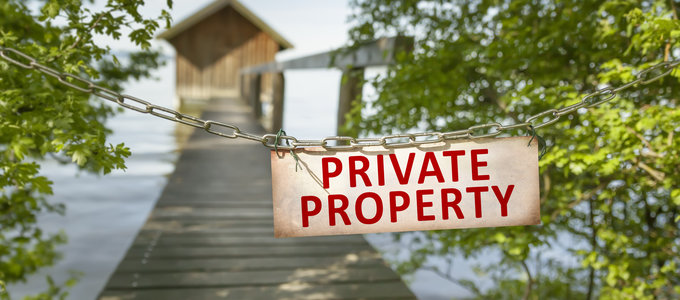Property & Land: What is adverse possession?

Adverse possession, more commonly known as “squatters’ rights”, is term under which a person can acquire legal ownership of someone else’s property (usually land), by being in possession of the land for a set period of time. Whilst this can seem quite unfair, the process of adverse possession can ensure that there is certainty over the land, the title and ownership as a whole.
The rules for claiming adverse possession vary, based on whether the land in question is registered or unregistered. For registered land, a person must have occupied the land continuously for 10 years. For unregistered land, the minimum amount of time that the land will need to have been continuously occupied is 12 years.
You may remember the film “Hampstead” with Brendon Gleeson’s character, Donald Horner, based on the true story of the late Harry Hallowes, who occupied a piece of registered land for over 12 years and then became its rightful owner, stumping the interests and hopes of a developer on the part of the land Mr Hallowes occupied.
In order to make a successful adverse possession claim, a person must be able to show:
-
That they have been in “factual possession” of the land for 10 or 12 years, as above. Factual possession displays the degree of control over the land – a person must have single and exclusive possession over the land. This is important as a person cannot be occupying the land alongside the registered proprietor, for example. It is equally important for physical control to be exercised over the land – this will vary depending on the circumstances, however fencing-off the land, for example, would usually be sufficient for the purposes of displaying physical control; and
-
That they have the necessary intention to possess the land – the key element of this criteria is showing that a person is, and has been, treating the land as their own. For example, repairing the land, spending money on it, and building on the land would likely fulfil this criteria; and
-
That they have been in possession of the land without the owner’s consent – possession cannot be adverse if a person has authority to be on and use the land.
Following this, if and when a successful claim has been made, a person with adverse possession can be added to the Land Registry title register.
For registered land: provided that no one objects to the application for registration:
-
a person will be able to obtain possessory title over the land.
For unregistered land:
-
occasionally it is possible to gain title absolute when first registering the land, however it is usual for possessory title to be acquired in the first instance.
To upgrade ‘possessory title’ to ‘title absolute’, it is possible to apply to the Land Registry for an upgrade, however this will only be possible once the possessory title has been registered for 12 years, uninterrupted. The Land Registry will then assess whether the title can be upgraded; this is done on a case-by-case basis.
Lawson West has extensive experience in acting for parties in applying for adverse possession claims. For more information, please contact commercial property solicitor, Rebecca Beswick, on 0116 212 1021 or email rbeswick@lawson-west.co.uk.
Read more about the Lawson West Commercial Property team here.
Please note that this is a basic overview only and should not be construed or relied upon as advice. Lawson-West Solicitors Limited accepts no duty of care to any third party in connection with this summary.
View all


